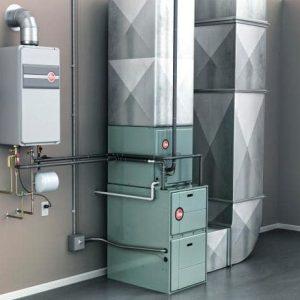Blog Categories
- Appliances Four
- Athletic Seating
- Auto Helpers
- Automated Stock Rooms
- Chocolate Four
- CuraFlo
- Damaged Goods Dating
- Flood Insurance Four
- Game Addict
- Hi Tech Pest Control
- HVAC Four
- Medical Labels Four
- Mental Health Four
- National CWS
- Promotional Ideas
- Seguros Lara Insurance
- Stem Cell Worx
- The Hidden Truth
- The Last Refuge
- The Mozilla Blog
- Video Editing Four
- Web Design Dev
- Website Development Four
- Windows Blog
can my furnace explode?

Furnaces are found in more homes than any other type of central heating system. Ironically, they’re also not well understood by the average homeowner, and that’s probably because they are so common; they’re easy to take for granted.
You don’t need to be a furnace expert to have a good working furnace, that’s why you have professionals help with any furnace service or other heater repair In fact, only professionals with licenses to work on gas-powered heaters should ever handle service on a furnace. But extra knowledge is always helpful, and homeowners often have questions about furnaces regarding safety.
Recent furnace explosions serve as a reminder that boilers must be maintained and operated in strict compliance with the manufacturers’ recommendations. A furnace explosion is usually the result of ignition and instantaneous combustion of highly flammable gas, vapor, or dust that has accumulated in a boiler. The effect of the force from the explosion is often much greater than the boiler combustion chamber can withstand.
Minor explosions, commonly known as deflagration, puffs, flarebacks, or blowbacks, may suddenly blow flames from firing doors and observation ports. Anyone in the path of a flame, which might extend many feet, maybe seriously burned. An increase in the intensity of the explosion would naturally increase the probability of a serious accident.
Furnace explosions may be avoided by taking reasonable precautions:
• Ensure that fuel inlet valves on nonoperating burners and ignitors are tightly closed and do not leak. • Purge the furnace in accordance with the manufacturer’s specifications each time before the first burner is ignited. • Ensure that the ignitors, fuel regulating controls, and flame safeguards operate as required. • Ensure that the fuel/air ratio is in accordance with the manufacturer’s specifications. • Remove oil guns from idle burners after closing the oil and air or steam supply valves when shutting down oil burners. Drain and clean residual oil from the guns before storage. • Never use the boiler’s soot blowers to blow soot in a cold boiler. • Ensure that limit and operating controls are in good working condition and are not “bypassed” or “jumpered out.”
Are there other ways my furnace can become dangerous? Yes, through leaks of combustion gases—specifically carbon monoxide (CO). This is a colorless, odorless, and toxic gas that’s left over after the combustion process in the heat exchanger of the furnace. The furnace exhausts these hazardous byproducts out a flue to the outside of the house, and there is little chance of CO getting into the house.
If there is a crack in the heat exchanger, which may occur due to corrosion and furnace age, CO can escape into the house. If you have CO detectors in your home (and if your house uses natural gas in any way, these detectors are required) you’ll be alerted so you can vacate your house and call the utility company. Usually, a furnace with a cracked heat exchanger must be fully replaced.
Should I install a humidifier for the furnace? If you have an older gas furnace where you can see the flames of the burners if you look into the cabinet, you may want to have a humidifier installed. These older furnaces must draw air from the house for the burners, and this allows drier outside air to enter the house. A newer furnace draws the air the burners need from outside (this is called sealed combustion) and won’t dry out the air.
can my furnace explode?
The post can my furnace explode? appeared first on KDM Gas.
Re Posted From: can my furnace explode?

Furnaces are found in more homes than any other type of central heating system. Ironically, they’re also not well understood by the average homeowner, and that’s probably because they are so common; they’re easy to take for granted.
You don’t need to be a furnace expert to have a good working furnace, that’s why you have professionals help with any furnace service or other heater repair In fact, only professionals with licenses to work on gas-powered heaters should ever handle service on a furnace. But extra knowledge is always helpful, and homeowners often have questions about furnaces regarding safety.
Recent furnace explosions serve as a reminder that boilers must be maintained and operated in strict compliance with the manufacturers’ recommendations. A furnace explosion is usually the result of ignition and instantaneous combustion of highly flammable gas, vapor, or dust that has accumulated in a boiler. The effect of the force from the explosion is often much greater than the boiler combustion chamber can withstand.
Minor explosions, commonly known as deflagration, puffs, flarebacks, or blowbacks, may suddenly blow flames from firing doors and observation ports. Anyone in the path of a flame, which might extend many feet, maybe seriously burned. An increase in the intensity of the explosion would naturally increase the probability of a serious accident.
Furnace explosions may be avoided by taking reasonable precautions:
• Ensure that fuel inlet valves on nonoperating burners and ignitors are tightly closed and do not leak. • Purge the furnace in accordance with the manufacturer’s specifications each time before the first burner is ignited. • Ensure that the ignitors, fuel regulating controls, and flame safeguards operate as required. • Ensure that the fuel/air ratio is in accordance with the manufacturer’s specifications. • Remove oil guns from idle burners after closing the oil and air or steam supply valves when shutting down oil burners. Drain and clean residual oil from the guns before storage. • Never use the boiler’s soot blowers to blow soot in a cold boiler. • Ensure that limit and operating controls are in good working condition and are not “bypassed” or “jumpered out.”
Are there other ways my furnace can become dangerous? Yes, through leaks of combustion gases—specifically carbon monoxide (CO). This is a colorless, odorless, and toxic gas that’s left over after the combustion process in the heat exchanger of the furnace. The furnace exhausts these hazardous byproducts out a flue to the outside of the house, and there is little chance of CO getting into the house.
If there is a crack in the heat exchanger, which may occur due to corrosion and furnace age, CO can escape into the house. If you have CO detectors in your home (and if your house uses natural gas in any way, these detectors are required) you’ll be alerted so you can vacate your house and call the utility company. Usually, a furnace with a cracked heat exchanger must be fully replaced.
Should I install a humidifier for the furnace? If you have an older gas furnace where you can see the flames of the burners if you look into the cabinet, you may want to have a humidifier installed. These older furnaces must draw air from the house for the burners, and this allows drier outside air to enter the house. A newer furnace draws the air the burners need from outside (this is called sealed combustion) and won’t dry out the air.
can my furnace explode?
The post can my furnace explode? appeared first on KDM Gas.
Re Posted From: can my furnace explode?

